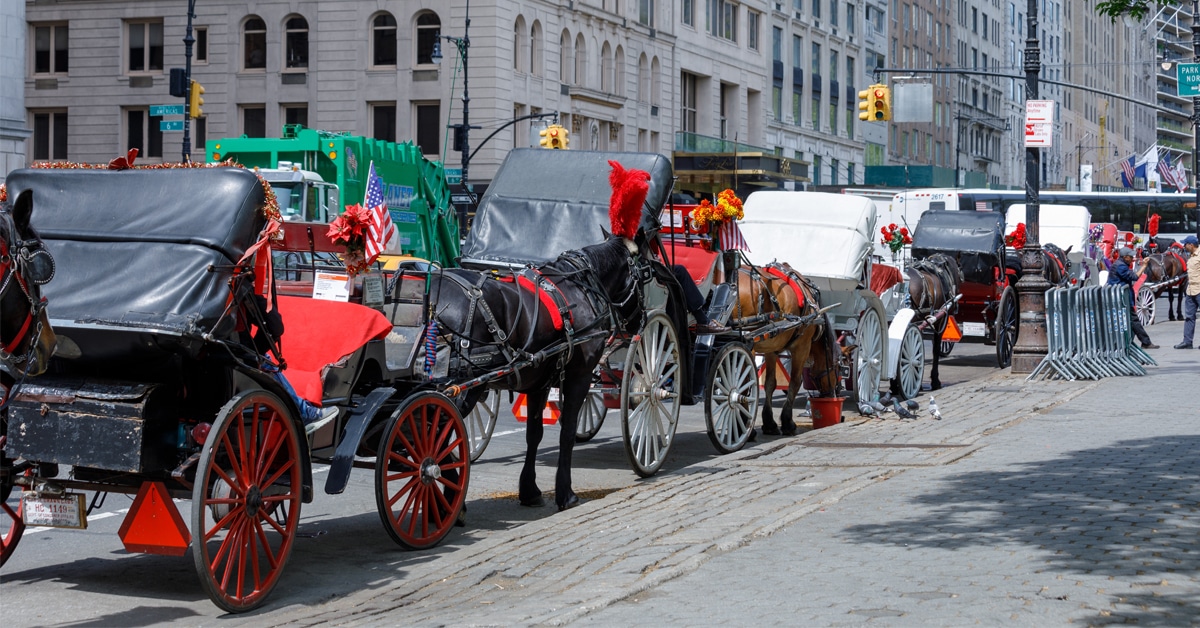We’ve been covering the horrific case of Ryder, the New York City carriage horse who collapsed on a Manhattan street on August 10, and who’s story has brought continued attention to the plight of other carriage horses in the city. Now two non-profit animal rights organizations, Animal Wellness Action and the Center for a Humane Economy have called on the Manhattan (New York) District Attorney’s office to investigate the collapse of Ryder.
The groups sent a letter to District Attorney Alvin Bragg, which were signed by their National Law Enforcement Council. Bragg’s jurisdiction includes the potential animal cruelty case of Ryder. Written and signed by council co-chairs Josh Marquis, D.A. of Clatsop County (Oregon) from 1994-2018, and Drew Edmondson, Oklahoma Attorney General from 1995-2011, the correspondence strongly encourages Bragg to use the power of his office to initiate an “energetic investigation” of what happened to Ryder.
Marquis and Edmondson are members of the National Law Enforcement Council of Animal Wellness Action. The 27-member group includes current and former local and state prosecutors, attorneys general, and other law enforcement professionals who support fortifying the legal framework against animal cruelty and seeing that animal welfare laws are robustly enforced at all levels of government.

